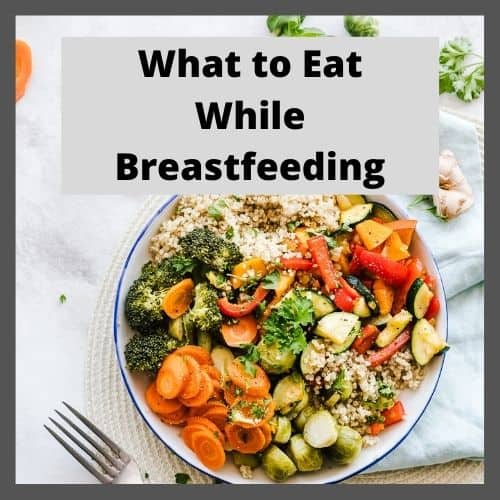If you have decided to breastfeed, then you may start to wonder, “What can I eat while breastfeeding? What would be best for me to eat?” Well, the truth is you can eat many things while breastfeeding really, but there is a catch. There are some foods that are better for you, your supply, and baby’s health than others. I don’t want to focus solely on your supply. I’ll do that in another post. I want to focus on some go-to foods for now that are healthy and nutritious for you and your baby so you know what to eat while breastfeeding.
What to Eat: Oatmeal
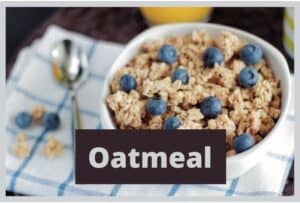
My go-to food when I started this journey was oatmeal. Why oatmeal? It actually helps with your iron levels, so if your iron is low, then your milk supply will be low. It also has an incredible amount of nutrients in it alone, and it can also help lower cholesterol.
I know, I know. Some of you probably do not like oatmeal. You hate the idea of warming up some instant oatmeal in a bowl and forcing yourself to eat it. Although that is one method of preparing it, just know that I have come up with alternative methods because eating the same thing every morning gets old. I learned to make homemade oatmeal muffins, oatmeal energy bites, and oatmeal protein shakes (without protein powder). If you’re interested in these recipes, please join my email list!
What to Eat: Water
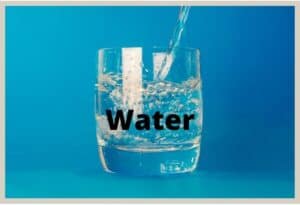
Besides oatmeal, I found that the best thing I could consume while nursing was water. Water will be and should be your best friend. If you do not drink a lot of water, your milk supply will show it. You may think you can substitute water with a sports drink, but I promise it won’t help you or be as hydrating as water. Water helped my milk supply more than anything else. Breastfeeding takes a lot of nutrients and liquids from your body, so we must replenish those liquids.
Besides helping your supply, drinking water will also help you lose your pregnancy weight. If you’re anything like me, you’re more than happy to drop a few pounds whenever you can. I’m here to tell you that water will help you do that. In a study done by Stookey, Constant, Popkin, and Gardner, they found that “absolute and relative increases in drinking water were associated with significant loss of body weight and fat over time, independent of covariates.” To sum that statement up for you, increasing the amount of water you drink daily will help you lose weight.
If you’re interested in reading the full study, it can be found here: Drinking Water Is Associated With Weight Loss in Overweight Dieting Women Independent of Diet and Activity | Request PDF (researchgate.net)
If you really hate drinking water, try adding some lemon or infusing some fresh fruit in it. I’m not big on the water flavoring powders because of the sugar, but if you like those, feel free to use them.
What to Eat: Fruits and Vegetables
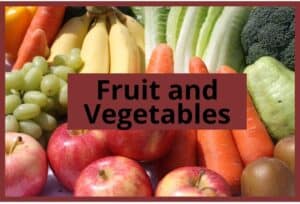
While breastfeeding, it is recommended that you eat at least one fruit and one vegetable a day. The nutrients alone are necessary for your baby, and they’re necessary for you. If you hate fruits and vegetables, keep in mind that you can also mix frozen fruit and a handful of spinach in with one of my oatmeal shakes (again, email me for the recipe). That would be an easy way to get those in your diet. You can also make fruit smoothies or mix some fruit in with your yogurt. Have a side salad with your meals as an easy way to get your one vegetables serving in for the day!
What to Eat: Dairy
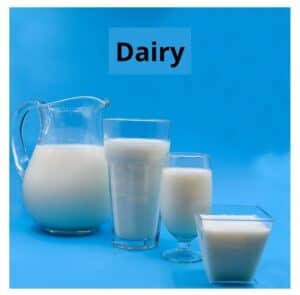
It is also equally important to make sure you’re getting enough calcium. I found myself actually craving tons of milk while pregnant and breastfeeding. Come to find out, my body was needing more calcium to support my baby, so it was causing me to crave milk. If you’re not a milk drinker, try mixing cheeses into your diet. If you’re lactose intolerant or allergic to the cow hormone in milk, there are alternatives. You can try organic cheeses, and you can try other forms of milk such as almond milk. Mix those in while cooking, or eat cheese as a snack. Trust me. You’ll need the calcium.
What to Eat: Protein
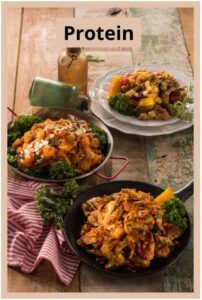
Aside from those, make sure you’re getting enough protein. If you have low blood sugar, like me, or high blood sugar, protein will help stabilize those levels for you. Therefore, making sure you have protein throughout the day is essential. Protein is also a great way to help you stay fuller longer so you’re not tempted to have sugary snacks later. You can eat meats with your breakfast, lunch, and dinner, and you can also add peanut butter or almond butter to your snacks and protein granola to your fruit shakes and yogurt. If you do not like meat, remember that there are other protein alternatives such as beans, cheeses, and Greek yogurt.
Why Does This Matter?
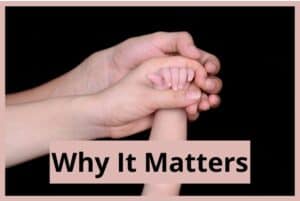
In short: your baby will get the nutrients it needs one way or another. Your body will provide and give the best to your baby first before you. Hence, if you’re not eating enough calcium for two, your baby will get the whole intake of calcium and leave you with none. The result? You could end up with fragile or broken bones (it happened to my friend because she wasn’t taking in enough calcium). If you don’t drink enough water, your milk supply will reflect that decision.
I say all that to reinforce that your body knows what to do. It knows how to take care of your baby and feed it. However, you need to take care of your body, and one of the best ways to do that is having a steady intake of all these healthy foods. Your baby will get what it needs, but make sure you get what you need too, Mama. Take care of you too!
Don’t forget; if you would like PDFs of recipe cards, please subscribe to my email list! I’d be more than happy to share.

